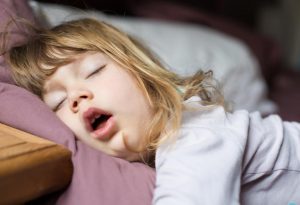In this Article
Uninterrupted sleep is a key factor in the healthy growth and development in children. But if your child is struggling to get a good night’s sleep, it’s important to know the reason behind it. If the child’s head sweats while sleeping, it can lead to discomfort and failure to sleep well. Your toddler’s night sweats can result in him crying in the middle of the night for the same reason. In such scenarios, it is necessary to get to the bottom of it and understand it properly.
What Are Night Sweats?
Whether or not night sweats are a result of a medical condition, they can be detrimental to a child’s health. Night sweats mean, quite simply, sweating during the night. This generally occurs as a result of the environment being hot, humid, or both, leading to sweating. Children require a deep sleep every night as that gives the body the time to repair itself. The body auto-regulates its own temperature when the weather is warm, but this system has not yet developed fully in children – this results in the sweat glands becoming larger than normal, and hence, sweating.
Common Causes of Night Sweats in Kids
Here are some of the common causes of night sweat in children:
- Using bedsheets that are either thick or large in number
- Wearing night apparel made of non-breathable material
- Having a room that is warmer than normal
- Lack of ventilation in the room
- The child is suffering from an infection that raises body temperature
- Effects of some medication your child may be on
- Having a nightmare
- Non-optimal weight, leading to body issues
- Having spicy food before going to bed, which is difficult to digest
- Changes in atmospheric temperature, even between air-conditioned rooms
- Suffering from sleep apnea, a condition where breathing stops and starts randomly
- Other sleeping problems, including snoring
- Cold and cough that causes a blocked nose
- Anxiety and stress a child might be suffering from
Symptoms of Excessive Night Sweating in Children
Here are some of the typical symptoms of night sweating:
- Your child might be gasping for breath intermittently while sleeping
- Your child’s breathing pattern might be irregular
- Your child might seem tired and exhausted throughout the day
- Your child has a tendency to keep their mouth open while he sleeps

How Is the Problem of Night Sweating Diagnosed in Children?
It is best to take your child to the doctor and get a medical opinion on any of the above-mentioned symptoms you see in him. The doctor will want to know the history pertaining to your child’s health, including any sleep-related habits that he has. The doctor will also inquire about the environment of the house, asking about temperature and ventilation. Then, a general check-up will be done to see if your child has an infection in the sinus or the ears, or any other underlying issue.
Treatment for Child Sweating at Night
There’s no specific treatment that directly targets a child’s night sweats. However, you can ensure that your child remains sweat-free by keeping him hydrated at all times, shifting him to a room that has proper ventilation, clothing him in soft, breathable material, and has bedding that is soft and light.
If the night sweats occur because of a disorder or an illness diagnosed by a doctor, your child will most likely be given medication to treat that problem. Make sure you are regular with it and do not skip a dose.
How to Help Your Child Avoid Sweating At Night
Here are a few tips you can use to avoid night sweats in children.
- Ensure that your child’s bedroom is at a temperature that is comfortable for the entire duration of the night.
- Avoid giving your child spicy or rich foods for dinner. Such foods can increase body temperature and thus the chances of having night sweats. Make sure that the child stays up for at least 30 minutes after dinner and does not sleep immediately.
- To help the child sleep better, take slow walks with him around the house post-dinner. This will help him digest his food better.
- Invest in proper, loose, and comfortable clothing that is purely meant for sleeping.
- Rid your child’s bedroom of needless comforters, blankets, and anything that might be too warm for him to sleep in.
- Ask your child about his day every day to understand if he is facing any problems in school or otherwise. This way, you can help him come out of his anxiety or stress if he has any.
- Talk to your doctor about your child’s symptoms and get regular checkups done to identify any medical issues.
- In case you notice that a certain type of medicine triggers nighttime sweating in your child, let your doctor know about it and see if they might recommend an alternative for the same.
Can Wool Bedding Ease Night Sweats in Children?
Wool bedding is generally considered the best option for a toddler. Wool has an inherent property of regulating body temperature, making it suitable for any environment. It will keep your child warm when it’s cold, and cool when it’s hot. Since night sweats make things uncomfortable, wool bedding will absorb most of the moisture and will keep things from being sticky or clammy, and keep your child in a deep slumber without any interruptions.
Your child’s excessive sweating at night can cause you to start worrying about him. By ensuring a good environment, proper clothing, and a fixed schedule, you can help him achieve the necessary sleep he needs. On consulting the doctor, any other issues can be resolved easily and night sweats would be nothing more than a thing of the past.









